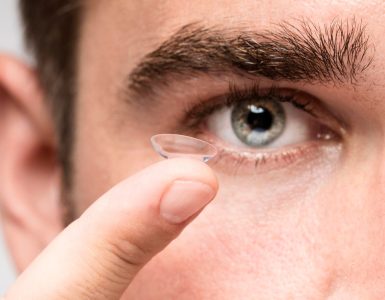When it comes to maintaining good eyesight, a balanced diet is essential. Among the various nutrients that benefit your eyes, omega-3 fatty acids stand out as crucial players in supporting and preserving eye health. In this article, we will explore the significant role of omega-3 fatty acids in promoting and protecting your vision.
The Omega-3 Connection:
Omega-3 fatty acids are a group of polyunsaturated fats that are known for their anti-inflammatory properties and numerous health benefits. There are three main types of omega-3s: alpha-linolenic acid (ALA), eicosapentaenoic acid (EPA), and docosahexaenoic acid (DHA). DHA, in particular, is the star player when it comes to eye health.
- Maintaining Retinal Health: DHA is a major structural component of the retina, the light-sensitive tissue at the back of the eye. It plays a crucial role in maintaining retinal function and visual acuity. A deficiency in DHA can lead to vision problems.
- Dry Eye Syndrome: Omega-3 fatty acids have been found to reduce the risk and alleviate symptoms of dry eye syndrome. This condition, characterized by insufficient tear production or poor tear quality, can cause eye discomfort and blurred vision.
- Protection Against Age-Related Macular Degeneration (AMD): AMD is a leading cause of vision loss in older adults. Omega-3 fatty acids, particularly DHA and EPA, are thought to help protect against the development and progression of AMD.
- Reducing Inflammation: Chronic inflammation is linked to various eye conditions. Omega-3s have anti-inflammatory properties that can help mitigate inflammation in the eyes, reducing the risk of certain eye diseases.
Incorporating Omega-3s into Your Diet:
To reap the eye health benefits of omega-3 fatty acids, consider adding the following foods to your diet:
- Fatty Fish: Salmon, mackerel, trout, and sardines are excellent sources of EPA and DHA.
- Flaxseeds and Chia Seeds: These seeds are rich in ALA, which your body can convert to EPA and DHA, although less efficiently.
- Walnuts: Walnuts provide a good source of ALA.
- Supplements: Omega-3 supplements, such as fish oil capsules or algae-based supplements, can also be taken under the guidance of a healthcare professional.
Omega-3 fatty acids, particularly DHA and EPA, play a vital role in supporting and protecting your vision. By including omega-3-rich foods in your diet or considering supplements, you can enhance your eye health and reduce the risk of eye conditions. However, it’s important to consult with a healthcare provider before making significant dietary changes or starting supplements.
Reference:
- American Academy of Ophthalmology. (2020). Omega-3 Fatty Acids. Retrieved from https://www.aao.org/eye-health/tips-prevention/omega-3-fatty-acids-eye-health




